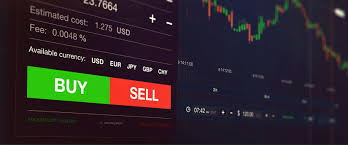

Forex Trading vs Stock Trading: Understanding the Differences
When it comes to investing and trading, two of the most prominent markets are the foreign exchange (Forex) market and the stock market. Each of these markets has its own characteristics, benefits, and drawbacks, making them appealing to different types of traders. In this article, we will delve into the intricacies of both Forex and stock trading, helping you to determine which market might be the best fit for your trading strategy. Additionally, for those interested in learning more about trading, trading forex vs stocks Trading PH offers a wealth of resources.
What is Forex Trading?
The Forex market is the largest and most liquid financial market in the world, where currencies are traded against one another. Forex trading involves buying one currency while simultaneously selling another, and the market operates 24 hours a day, five days a week. The primary purpose of Forex trading is to speculate on the price movements of currency pairs, such as EUR/USD or GBP/JPY.
What is Stock Trading?
Stock trading, on the other hand, involves buying and selling shares of ownership in publicly traded companies. The stock market operates during specific hours, typically from 9:30 AM to 4:00 PM EST in the United States, with some pre- and after-market trading hours. Investors in the stock market aim to profit from price movements in stocks, dividends, and capital gains.
Market Hours
One of the significant differences between Forex and stock trading is the market hours. The Forex market operates around the clock due to its worldwide nature, allowing traders to execute trades at any time that is convenient for them. In contrast, stock trading is limited to specific exchanges’ operating hours, which can restrict trading activity for those who have full-time jobs or other commitments.

Liquidity
Liquidity is another critical factor to consider when comparing Forex and stock trading. The Forex market is known for its high liquidity, meaning that traders can enter and exit positions with minimal price slippage. This is particularly important for scalpers and day traders who rely on quick trades and small price movements.
While the stock market also has liquid shares, the liquidity can vary significantly between different stocks. Major blue-chip stocks tend to have high liquidity, while smaller or less popular stocks may experience lower liquidity, making it more challenging to execute trades at desired prices.
Leverage
Forex trading often allows for higher leverage compared to stock trading. Leverage enables traders to control a larger position with a smaller amount of capital. For example, Forex brokers commonly offer leverage ratios of 50:1 or even 100:1, meaning that with a $1,000 investment, a trader could control up to $100,000 in currency. While this can amplify profits, it also increases the risk of significant losses.
In the stock market, leverage is typically more conservative, often capped at 2:1 for individual traders. This lower leverage can be safer in some respects, but it also limits the potential for high returns.
Risk and Volatility
Both Forex and stock trading come with inherent risks and varying levels of volatility. The Forex market can experience rapid price movements due to geopolitical events, economic releases, or central bank policies, leading to higher risk. While this volatility can create profitable trading opportunities, it can also result in significant losses if not managed correctly.
The stock market can also be volatile, particularly during earnings seasons or economic downturns. However, stocks may not experience the same level of rapid price swings as Forex pairs, depending on the underlying company’s performance and market sentiment.

Trading Strategies
Each market requires different trading strategies to be successful. Forex trading often employs technical analysis, focusing on price charts, patterns, and indicators to make trading decisions. Many Forex traders also incorporate economic news and reports to predict future price movements based on macroeconomic factors.
In contrast, stock traders might use a combination of fundamental analysis—evaluating a company’s financial health and performance metrics—and technical analysis. Long-term investors may concentrate on fundamental factors to select stocks for their portfolios, while day traders might focus entirely on technical indicators for short-term trades.
Costs of Trading
Cost structures differ significantly between Forex and stock trading. Forex trading typically involves spreads, which is the difference between the buy and sell price, and sometimes commissions depending on the broker. Stock trading may involve commission fees charged by brokers, but many platforms now offer commission-free trading. Furthermore, the costs associated with stock trading can vary widely depending on the broker and the size of the trade.
Choosing the Right Market for You
Ultimately, the choice between Forex and stock trading depends on individual preferences, risk tolerance, and trading goals. Forex trading may appeal to those looking for a more dynamic, fast-paced market with opportunities for higher leverage and 24/5 accessibility. In contrast, stock trading may be better suited for those who prefer a more traditional investment path, focusing on specific companies and seeking long-term growth.
Conclusion
Both Forex and stock trading have their unique advantages and challenges. Taking the time to research and understand the differences between these markets can help you make an informed decision about which trading style aligns with your financial goals. Whether you choose to dive into the world of currencies or stocks, remember that education, practice, and disciplined trading are the keys to success in any financial market.





















